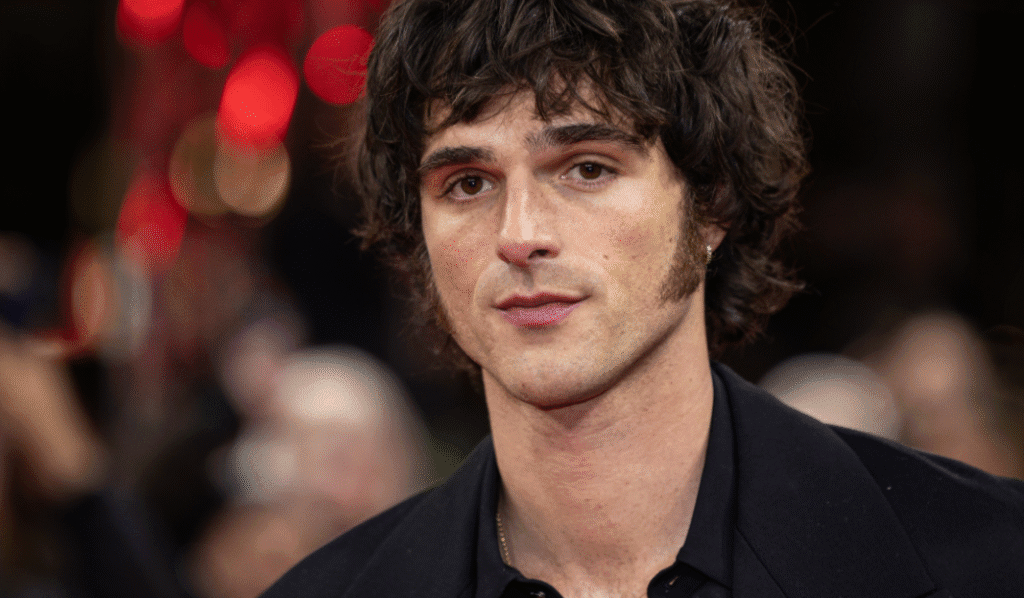Jacob Elordi, the Australian actor known for his roles in Euphoria and Saltburn, has taken on a challenging and transformative role as the Creature in Guillermo del Toro’s upcoming adaptation of Mary Shelley’s Frankenstein. In a recent interview at the film’s Los Angeles premiere, Elordi shared insights into his experience portraying the iconic character and the creative process behind the film.
Elordi emphasized that his portrayal of the Creature was not about suffering or torment, a common misconception associated with method acting. Instead, he described the experience as “creatively very liberating.” He credited director Guillermo del Toro for fostering a “safe space” on set, allowing the cast to explore their roles without the pressure of traditional method acting. Elordi explained, “There’s a certain point once the prosthetics go on where they kind of demand that you are The Creature and there’s a level of focus that needs to come to the role. But at the same time Guillermo created such a free set, I hate when people say this but he really created a safe space, so it was creatively very liberating to be on that set.”
The transformation into the Creature was no small feat. Elordi underwent extensive makeup sessions, spending approximately 10 hours each day in the makeup chair. The process involved applying around 42 prosthetic pieces, a testament to the film’s commitment to authenticity and the actor’s dedication to the role. This physical transformation was complemented by Elordi’s emotional preparation, which included studying butoh, a Japanese dance form, to embody the Creature’s raw and primal emotions.
Director Guillermo del Toro, known for his visionary storytelling, approached this adaptation with a deep personal connection to the material. He described the completion of the film as a mix of “postpartum depression and celebration,” reflecting the intense emotional journey of bringing the project to fruition. Del Toro explained, “It’s because when the horizon shifts that brutally, like if you dreamed of making the team or dreamed about graduating or whatever and then you do it and you go, ‘Ah!’, like the elevator dropped, so that’s the one thing; the other one is the joy of having achieved, with a great team, a very operatic, beautiful, epic intimate story about fathers and sons and fathers and sons transmitting the pain.”

The film delves into themes of fatherhood, forgiveness, and the complexities of creation. Del Toro emphasized the importance of presenting the story from both the Creature’s and Victor Frankenstein’s perspectives, offering a nuanced exploration of their intertwined fates. This duality allows audiences to understand the motivations and struggles of both characters, moving beyond the traditional portrayal of the Creature as merely a monster.
Elordi’s portrayal of the Creature is expected to challenge conventional perceptions of the character. The film’s latest trailer highlights the Creature’s complex nature, depicting him as both powerful and frightening, yet simultaneously fragile and childlike. This nuanced representation aligns with Del Toro’s tradition of creating monsters that are as emotionally resonant as they are fearsome.
The collaboration between Elordi and Del Toro marks a significant moment in both their careers. For Elordi, it represents a departure from his previous roles and an embrace of more complex and challenging characters. For Del Toro, it is the realization of a long-held passion project, bringing his vision of Frankenstein to the screen with a fresh perspective.
As the film approaches its release, anticipation continues to build. Frankenstein is set to premiere in select cinemas on October 17, 2025, followed by its streaming debut on Netflix starting November 7, 2025. With its rich storytelling, compelling performances, and Del Toro’s distinctive directorial style, the film promises to offer a new and profound interpretation of a classic tale.
Jacob Elordi’s experience portraying Frankenstein’s Creature was marked by creative freedom, emotional depth, and a commitment to authenticity. Under the guidance of Guillermo del Toro, the film explores the timeless themes of creation, responsibility, and the complexities of human nature. As audiences prepare to witness this reimagined classic, Elordi’s transformative performance stands as a testament to the power of storytelling and the enduring relevance of Shelley’s original work.








